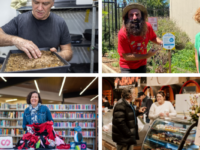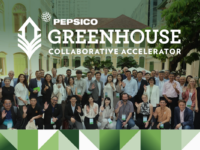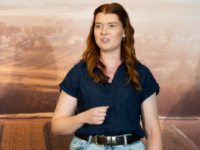Pepsi has launched the second round of its Greenhouse Accelerator program in the Asia Pacific (Apac) region. The initiative aims to support entrepreneurs in developing innovative solutions for sustainable agriculture, climate action, and the circular economy.
For this year’s program, the F&B giant has partnered with Suntory PepsiCo Beverage Thailand, Suntory PepsiCo Vietnam Beverage, and Circulate Capital to address a comprehensive range of environmental challenges.
The company will select up to 10 applicants who will receive $30,400 (US$20,000) in grants and mentorship from subject-matter experts to develop their executive bench and leadership skills. The final winner will be awarded $152,000 (US$100,000), and the announcement will be made in Thailand next year.
“Last year, we initiated seven pilot projects, each contributing to our sustainability goals and demonstrating the power of partnership,” Wern-Yuen Tan, CEO in APAC for PepsiCo, said. “APAC is a focal region for agri- and food-tech innovation, and with new partners joining us, we aim to use our reach to influence the food ecosystem positively.”
The seven pilot projects included in last year’s Green House Accelerator are:
Adiona
Adiona’s SaaS solution focuses on last-mile delivery-route planning and optimisation based on real-time data. The company worked with PepsiCo mentors to identify opportunities for optimisation in our Australia value chain, particularly in Tingalpa.
The data pilot showed route optimisation could lead to a 19.4 per cent reduction in distance travelled and CO2 emitted from Tingalpa’s logistics routes.
Aspiring Materials
Aspiring Materials captures CO2 emissions using existing materials that are occurring in nature. The company has partnered with PepsiCo’s Wiri site in Auckland to pilot a carbon capture structure.
Remakehub
The company drives the circularity of packaging through upcycling low-value plastic and consumer education. PepsiCo mentors identified an opportunity to replace secondary cardboard packaging sold to customers with upcycled polyethylene bottle caps, resulting in an estimated cost savings.
Powered Carbon
Powered Carbon converts CO2 into useful chemicals using clean energy. The company partnered with PepsiCo’s agriculture team and fertiliser supplier in China to develop a fertiliser component. Since its pilot, its low-carbon fertiliser has been used in PepsiCo’s potatoes in Guangdong, China.
HRK Group
HRK Group is working against plastic pollution by developing 100 per cent biodegradable, compostable, and recyclable paper food packaging. The company has explored transforming potato starch from PepsiCo’s potato chip lines into secondary packaging.
MEDS Ventures
Meds’ Decaplan tool allows end-to-end multi-energy and multi-objective optimisation and decarbonisation of industrial sites.
Green2Get
Green2Get’s digital platform and application promote the circular economy by connecting stakeholders in the recycling value chain, facilitating efficient trading of materials, and encouraging sustainable recycling behaviour modification.
Since its inception in 2017, the Greenhouse Accelerator has included over 86 companies across the Middle East and North Africa, Europe and Sub-Saharan Africa, the US, and Apac. To date, the emerging start-ups’ collective revenue has exceeded $30.4 million (US$20 million).
Last year, the program received over 100 applications across the Apac region, with Powered Carbon delivering the winning solution.
Applications for this year are now open, and Apac start-ups with solutions in sustainable packaging, climate action, and sustainable agriculture spaces are eligible to apply. The shortlisted applicants will be selected based on the degree of innovation, business model scalability, uniqueness, disruptive potential, and a mission to drive emissions reduction and circularity.
This story first appeared on our sister publication Inside FMCG
















